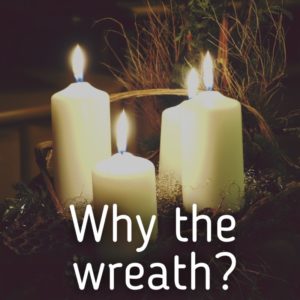Today’s blog post is from Laura Ferree, current seminarian and Leadership in Context student at Jacob’s Porch, Ohio State University, Columbus, Ohio. Laura shares her experience following the car and knife attack that took place on the OSU campus on Nov. 28, 2016.
On Monday November 28th I was driving to the Columbus airport to pick up a friend when a NPR news broadcaster stated, “There is an active shooter being reported on Ohio State University’s campus”. My heart sank. My mind instantly raced to all the students I have come to know during my time as the Leadership in Context student at Jacob’s Porch, Ohio State’s Lutheran Campus Ministry. Through social media, we quickly determined that all of our students were safe but some were in buildings very close to the violent incident. As I went through my morning at 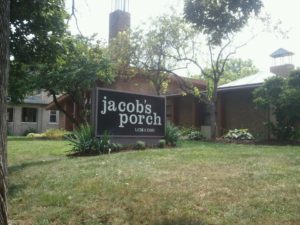 Trinity Lutheran Seminary I knew that I needed to be at the Porch that night. My mind was racing about what kind of space we needed to create at the Porch when Grant Eckhart, the pastor at Jacob’s Porch, called. He told me that he was out of town but we agreed the Porch needed to be open. My heart sank once again. I am only a seminary student. How did I have the qualifications to do this? With Grant’s trust and guidance, I felt prepared to enter ministry that day with students at the Porch knowing that the Holy Spirit would intercede when our sighs were too deep for words.
Trinity Lutheran Seminary I knew that I needed to be at the Porch that night. My mind was racing about what kind of space we needed to create at the Porch when Grant Eckhart, the pastor at Jacob’s Porch, called. He told me that he was out of town but we agreed the Porch needed to be open. My heart sank once again. I am only a seminary student. How did I have the qualifications to do this? With Grant’s trust and guidance, I felt prepared to enter ministry that day with students at the Porch knowing that the Holy Spirit would intercede when our sighs were too deep for words.
As soon as possible I went to the Porch and was greeted by students, but also by news crews and cameras. As the media buzzed around there was a deep sense of palpable anguish. Amid the distress and uncertainties, we created a sacred space of prayer and lament as we reflected on the events of that morning. The Porch is a place of vulnerability where people can simply be, and on this day of tragedy many people needed to just be.
On this day we turned to something we often do: light candles and place them in a sandbox cross remembering that Christ is the light of the world. We sit on cushions around this cross and turn to prayer remembering the promise that is in the cross, the promise of eternal life and forgiveness of our sins. Coming back to the cross in this way centers us on the promise of an everlasting light that extinguishes darkness which can be easily forgotten in times of tragedy.
The Porch is a place of refuge and rest, for our Christian family but also for the Muslim and Somali community. Due to the identity of the attacker our Muslim and Somali siblings were experiencing a threat to their safety. We are called to come together in love not hate and therefore we strive to make the Porch a safe space for all regardless of religion or nationality. On that chaotic afternoon, we found rest in each other and cried out to God to be our refuge and strength.

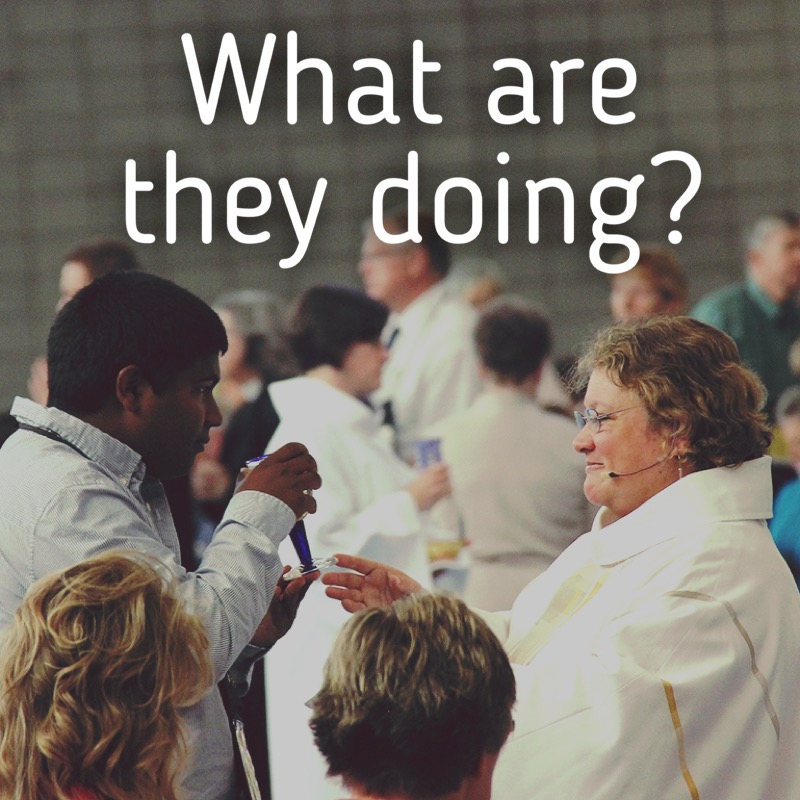
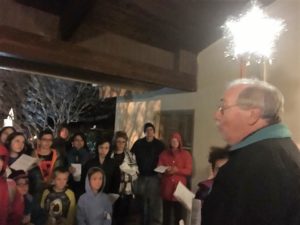 The day of Epiphany has become a special celebration within my congregation, Trinity Lutheran Church in Lilburn, Georgia. In an area where most of the Christmas decorations are put away before the New Year and the world has grown a little darker without Christmas lights, we gather under a lit star to carry that light out into the world. Several years ago we were able to find a battery operated star that we place on a long pole, then one of our youth is chosen to bear that light into the world. We gather around the baptismal font with the star and pray that God might bless our homes and that we might be the light shining in our world. We hear again the passage from Matthew of the Magi’s journey to find the Christ child and then sing as we process to the front door of the church. This door is marked with chalk, “20+CBM+17,” the year with the initials of “Christus Mansionem Benedicat” – May Christ Bless the House.
The day of Epiphany has become a special celebration within my congregation, Trinity Lutheran Church in Lilburn, Georgia. In an area where most of the Christmas decorations are put away before the New Year and the world has grown a little darker without Christmas lights, we gather under a lit star to carry that light out into the world. Several years ago we were able to find a battery operated star that we place on a long pole, then one of our youth is chosen to bear that light into the world. We gather around the baptismal font with the star and pray that God might bless our homes and that we might be the light shining in our world. We hear again the passage from Matthew of the Magi’s journey to find the Christ child and then sing as we process to the front door of the church. This door is marked with chalk, “20+CBM+17,” the year with the initials of “Christus Mansionem Benedicat” – May Christ Bless the House.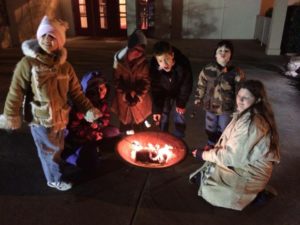 of Epiphany: graham crackers, marshmallows and chocolate. The night ends with the greens burned, the reading of John 1:1-4, 14, 16 and the making of s’mores. In bleak, cold winter’s night light shines in the darkness and laughter fills the sky. As pastor I get to enjoy my own tradition of seeing which of our youth can roast the perfect marshmallow, with me as the judge and official Epiphany taste tester. For those unable to attend we also provide a home devotion so their homes can be blessed and marked for the New Year.
of Epiphany: graham crackers, marshmallows and chocolate. The night ends with the greens burned, the reading of John 1:1-4, 14, 16 and the making of s’mores. In bleak, cold winter’s night light shines in the darkness and laughter fills the sky. As pastor I get to enjoy my own tradition of seeing which of our youth can roast the perfect marshmallow, with me as the judge and official Epiphany taste tester. For those unable to attend we also provide a home devotion so their homes can be blessed and marked for the New Year.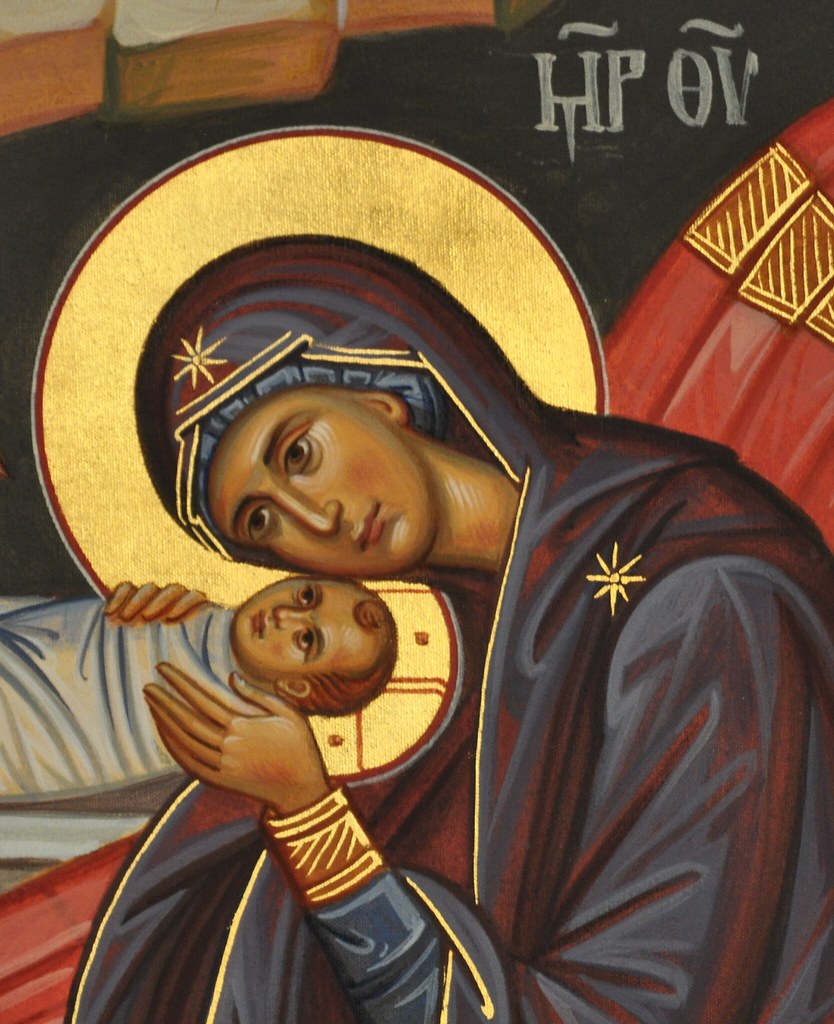 now among us? Do we marvel at how Christ’s birth transforms us to be like that bright star, guiding the nations to God’s light and love revealed in Jesus?
now among us? Do we marvel at how Christ’s birth transforms us to be like that bright star, guiding the nations to God’s light and love revealed in Jesus?